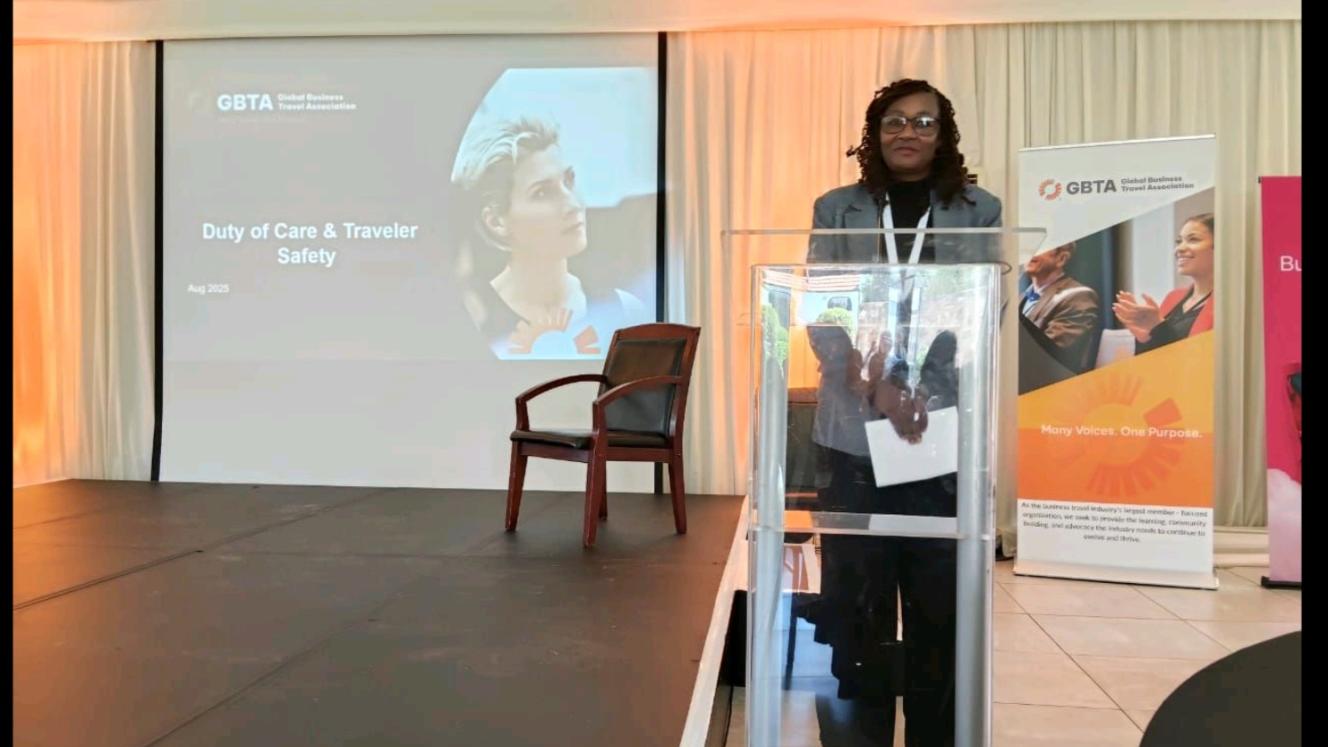The power of partnerships and collaboration between airlines, airports, TMCs, technology providers, and other stakeholders are vital for improving the passenger experience. This was the message from a panel discussion at the recent GBTA South Africa Conference, held at River Meadow Manor in Irene.
One of the panellists, Tebogo Tsimane, Chief Commercial Officer at SAA, said stakeholders within the corporate travel industry tended to operate in silos, instead of relying on each other to improve the corporate traveller’s experience.
He said it should be much easier for airlines, TMCs and others, to have direct contact in case of an emergency. “If these snags can be sorted out faster, it will automatically improve the corporate traveller’s experience.”
Partnerships not transactional
Panel moderator, Kamogelo Maerman, National Sales Leader at FCM Travel, pointed out that while partnerships were often touted as the solution, they quickly unravelled when things went wrong.
He advised that travel buyers should not ask themselves how their partnerships were going, but rather ask: “Show me your data on our travellers' experience. Demand monthly dashboards showing resolution times, first-call fixes, and proactive communication metrics.”
Madren Pitsi, AME Senior Travel Analyst, said that, for partnerships to succeed, they must be strategic and transformational, rather than transactional. “By aligning goals and expectations, travel buyers can work closely with suppliers to streamline travel procurement processes, drive continuous improvement, and improve the experience of the corporate traveller.”
Pitsi said traveller friction and frustration could be more quickly resolved if technology was incorporated into the process. For example, automated expense management systems reduced dependence on TMCs by giving travellers access to the necessary mobile applications, thus empowering them.
Shared responsibility
The panel agreed that the wellbeing of corporate travellers should be the responsibility of travel buyers, supported by the right partners. Destinations should regularly be assessed to evaluate potential exposure or, alternatively, travel buyers should partner with a risk company to provide this service.
Travel policies should clearly highlight high-risk areas and outline specific steps travellers should implement to stay safe. “Compliance with travel policy is crucial. Non-compliance will put travellers at risk.”
The panel also advised travel buyers to integrate duty of care and travel risk management processes into their daily travel programme.
Pitsi concluded that a Crisis Action Management Programme (CAMP) should be incorporated to enhance communication and elevate business travel. The CAMP team should consist of a partnership between representatives from security services, risk insurance, health and safety, human resources and local leadership.













